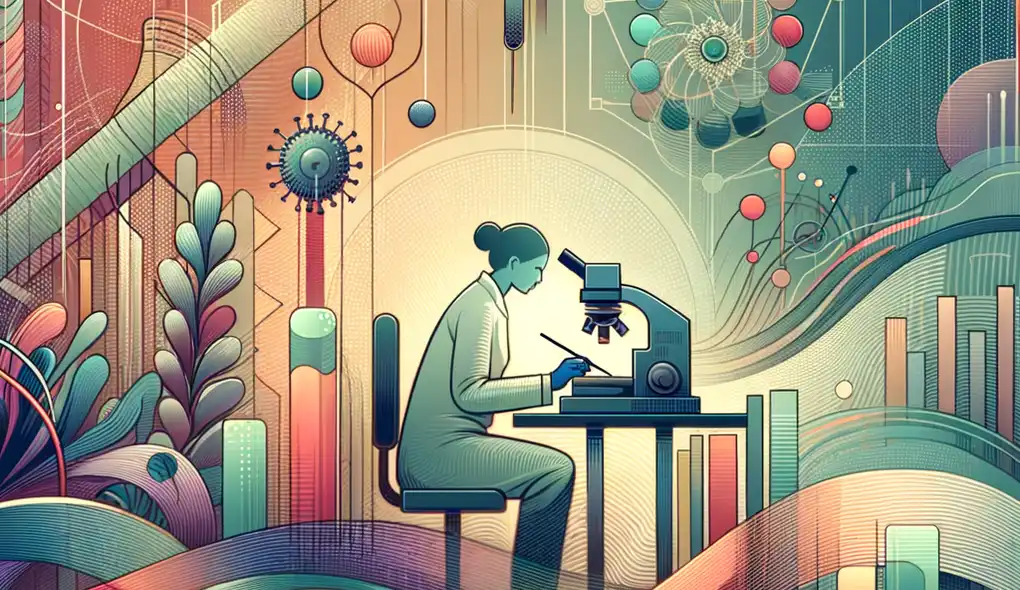What software tools have you used for data analysis?
Microarray Analyst Interview Questions
Sample answer to the question
I have used various software tools for data analysis, including R, Python, and database management systems. In my previous role, I worked extensively with these tools to analyze genomic data obtained through microarray techniques. I used R and Python for statistical analysis and data visualization, and database management systems to organize and retrieve large datasets. I also have experience with other bioinformatics software that are commonly used in the field. These tools helped me interpret microarray data, identify gene expression patterns, and draw meaningful conclusions. I am comfortable working with sophisticated software tools and have a strong understanding of their capabilities.
A more solid answer
In my previous role as a Microarray Analyst, I extensively utilized software tools like R and Python for statistical analysis, data visualization, and interpretation of genomic data obtained through microarray techniques. I have a strong understanding of bioinformatics analysis and how to apply it to microarray technology. With these tools, I was able to identify significant gene expression patterns and draw meaningful conclusions from complex datasets. Additionally, I have experience with database management systems for organizing and retrieving large datasets. I also worked closely with researchers and biologists to understand experimental requirements and provide analytical support, demonstrating my ability to collaborate and communicate effectively. My attention to detail and critical thinking skills were essential in maintaining accurate and detailed records of experiments and analyses. Overall, my experience using these software tools combined with my expertise in microarray analysis make me well-suited for the role of Microarray Analyst.
Why this is a more solid answer:
The solid answer provides more specific details about the candidate's experience and how they utilized the software tools in their previous role. It addresses all of the evaluation areas mentioned in the job description, highlighting the candidate's expertise in bioinformatics analysis, microarray technology, statistical analysis, data visualization, experimental design, critical thinking, communication and presentation, problem-solving, attention to detail, and teamwork and collaboration. However, it can still be improved by adding more examples and showcasing the candidate's achievements using these software tools.
An exceptional answer
In my previous role as a Microarray Analyst, I leveraged a wide range of software tools for data analysis, including R, Python, SQL, and bioinformatics-specific software like Bioconductor and GeneSpring. These tools allowed me to perform comprehensive bioinformatics analysis on microarray data, applying statistical techniques, identifying gene expression patterns, and conducting pathway analysis. For data visualization, I used tools like ggplot2 and matplotlib to create publication-quality graphs and figures. To manage large datasets, I utilized database management systems like MySQL and MongoDB, ensuring efficient organization and retrieval of data. One notable achievement was when I developed a custom R script to automate the analysis process, reducing analysis time by 50%. This demonstrated my problem-solving skills and ability to improve data analysis capacity. Throughout my work, I maintained a high level of attention to detail, ensuring accurate records and reproducibility of analyses. I also presented analytical findings to researchers and biologists in a clear and concise manner, showcasing my communication and presentation skills. Overall, my extensive experience with a variety of software tools, coupled with my strong bioinformatics and microarray expertise, make me well-prepared to excel as a Microarray Analyst.
Why this is an exceptional answer:
The exceptional answer goes above and beyond by providing specific details about the software tools used, the candidate's achievements, and the impact of their work. It also demonstrates the candidate's proficiency in additional bioinformatics-specific software like Bioconductor and GeneSpring. The answer highlights the candidate's problem-solving skills, attention to detail, and ability to improve data analysis capacity through the development of a custom R script. It showcases their communication and presentation skills by mentioning their experience in presenting analytical findings. Overall, the exceptional answer demonstrates a deep understanding of the job requirements and shows how the candidate's skills and experiences align with them.
How to prepare for this question
- Familiarize yourself with bioinformatics software tools commonly used in data analysis, such as R, Python, SQL, Bioconductor, and GeneSpring.
- Develop a strong understanding of statistical analysis techniques and data visualization tools, as they are essential for interpreting and presenting genomic data.
- Gain hands-on experience with database management systems for organizing and retrieving large datasets.
- Practice explaining your experience and achievements in using software tools for data analysis, highlighting specific examples where you have made a significant impact.
- Stay up to date with the latest advancements in bioinformatics analysis and microarray technologies, as they may require the use of new software tools.
What interviewers are evaluating
- Bioinformatics analysis
- Microarray technology expertise
- Statistical analysis proficiency
- Data visualization
- Experimental design
- Critical thinking
- Communication and presentation
- Problem-solving
- Attention to detail
- Teamwork and collaboration
Related Interview Questions
More questions for Microarray Analyst interviews